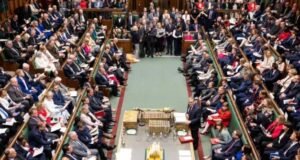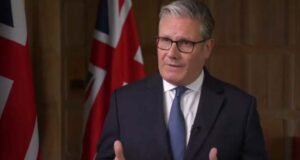George Osborne is preparing to bow to bow to pressute to soften the impact of tax credit cuts to resolve standoff with the House of Lords over his proposed cuts to tax credits.
As a growing number of ministers warn in private that the government has been damaged by its apparent insensitivity to low-paid workers, the chancellor embarked on the first stages of a change of tack.
A senior government source said the chancellor had given himself “wriggle room” in his original deficit-reduction plan that will give him the space to divert substantial resources to “lessening” the impact of the tax credit cuts.
Osborne, who will outline his plan to soften the impact of the planned cuts when he delivers his autumn statement on 25 November, told MPs he would seek to help low-paid workers.
There will be a particular focus on helping people in the transition period between the introduction of the “national living wage” and its full impact on earnings.
The chancellor told MPs: “We will continue to reform tax credits and save the money needed so that Britain lives within its means while at the same time lessening the impact on families during the transition.”
The government adopted a tough strategy in public as Treasury officials started to draw up changes to the tax credit plans that are designed to defuse the row with the House of Lords and to reassure Conservative MPs in marginal seats who have voiced concerns about the impact on lower earners.
Many ministers say the chancellor has struggled to provide an adequate answer to the warning by the Institute for Fiscal Studies (IFS) that 3 million families will be worse off by £1,000 a year.
Osborne adopted a robust approach in the Commons when he said he was determined to reduce the reliance of low-paid workers on tax credits.
He told MPs: “I will set out the plans in the autumn statement. We remain as determined as ever to build a low-tax, low-welfare, high-wage economy that Britain needs and the British people want to see.”
Downing Street also made clear that it is spoiling for a fight with the upper house when it announced that Lord Strathclyde, the former Tory leader of the Lords, would lead a review to avoid a repeat of the vote on Monday night.
The former Labour social security minister Lady Hollis forced a delay to the tax credit cuts after peers voted for her motion calling on the government to outline a package of compensation for low-paid workers.
Downing Street said the votes – another motion by the crossbencher Lady Meacher was also passed – broke the constitutional convention that the upper house does not block or delay financial measures.
The review will seek to find ways of avoiding a repeat of the votes which have delayed the statutory instruments that were meant to introduce the tax credit cuts.
A No 10 spokesman said: “The government is setting up a review to examine how to protect the ability of elected governments to secure their business in parliament.
“The review would consider in particular how to secure the decisive role of the elected House of Commons in relation to its primacy on financial matters and secondary legislation. The review will be led by Lord Strathclyde, supported by a small panel of experts.”
The government has been so angered by the House of Lords that it could railroad through the tax credit cuts with a new statutory instrument, or by attaching the changes to a separate parliamentary bill, or by introducing an emergency standalone bill.
These would be done in such a way that the Speaker, John Bercow, would be obliged to designate them as financial measures, forcing peers to accept the cuts.
The former shadow home secretary David Davis called on the chancellor to ensure that tax credits are paid at a reasonable level until the national living wage fully kicks in.
One government source said: “George Osborne has given himself wriggle room to come up with a full plan. George has quite a wide space. There is headway in his plans.”
The chancellor could free up substantial resources by lowering his target of delivering a £10bn surplus by 2019-20. Osborne, who has already delayed his surplus target by a year, adapted his deficit reduction plans in the last parliament when the economy stalled.
He is likely to have to revise the surplus target anyway if, as expected, the Office for Budget Responsibility (OBR) revises down its growth targets ahead of the autumn statement.
He could argue that as the economy slows down, raising questions about whether companies will be able to pay the national living wage, more help is needed for the low paid.
The possibility that Osborne could adopt a flexible approach surfaced when John McDonnell, the shadow chancellor, asked him whether he would adopt a “less excessive surplus target”.
Osborne did not rule out lowering his surplus target and instead incorrectly suggested that McDonnell was calling on him to abandon his target altogether.
Don't Miss
- Tk 26 lakh crore looted in name of development: Jamaat Ameer
- No election bid for ICT convicts: Attorney General
- One killed, 11 injured in Sylhet road mishap
- Bangladesh rout Turkmenistan 7-0 to seal spot in AFC Women’s Asian Cup
- Government funding supports borough-wide resurfacing to extend road life and cut carbon emissions
 Weekly Bangla Mirror | Bangla Mirror, Bangladeshi news in UK, bangla mirror news
Weekly Bangla Mirror | Bangla Mirror, Bangladeshi news in UK, bangla mirror news








